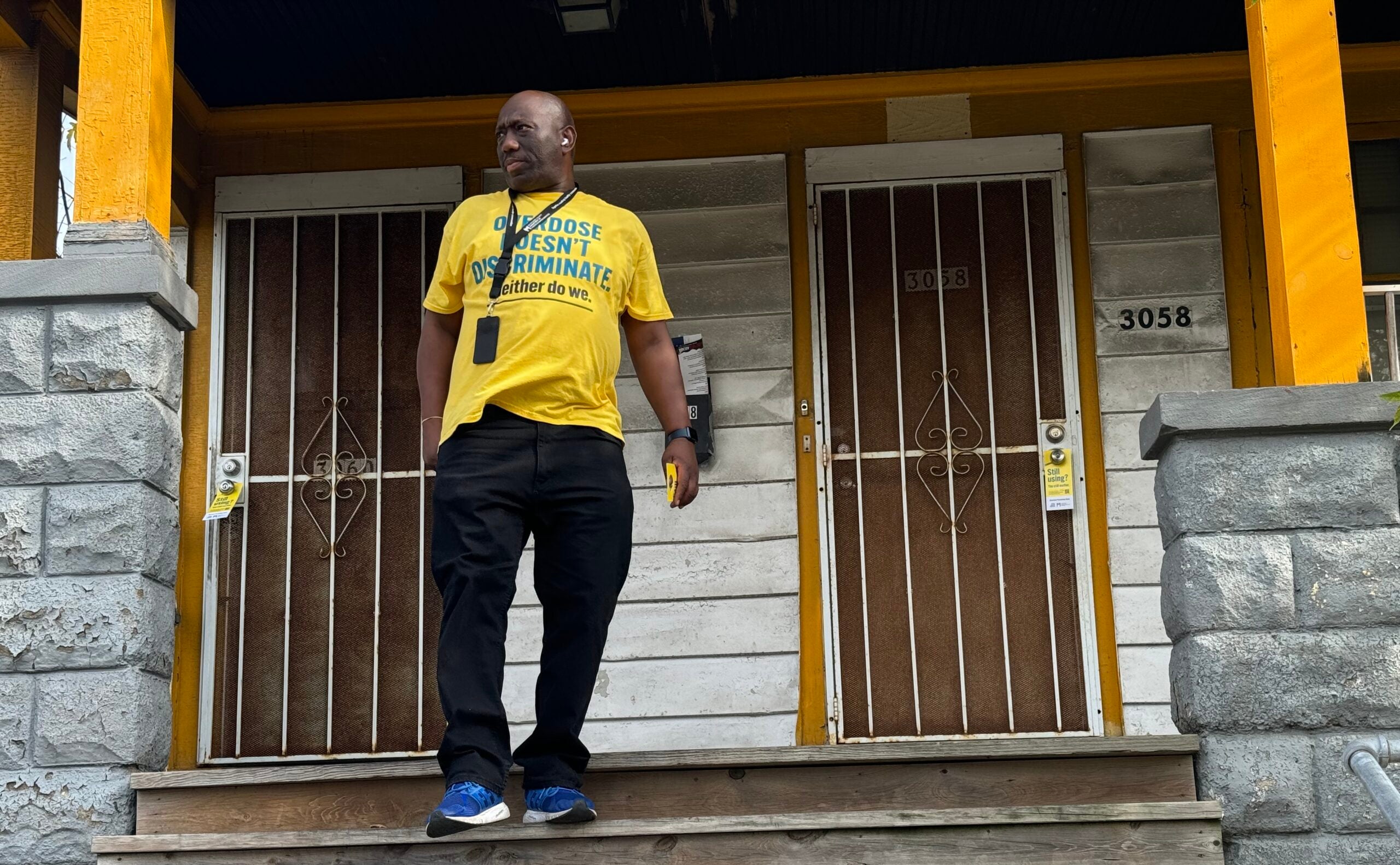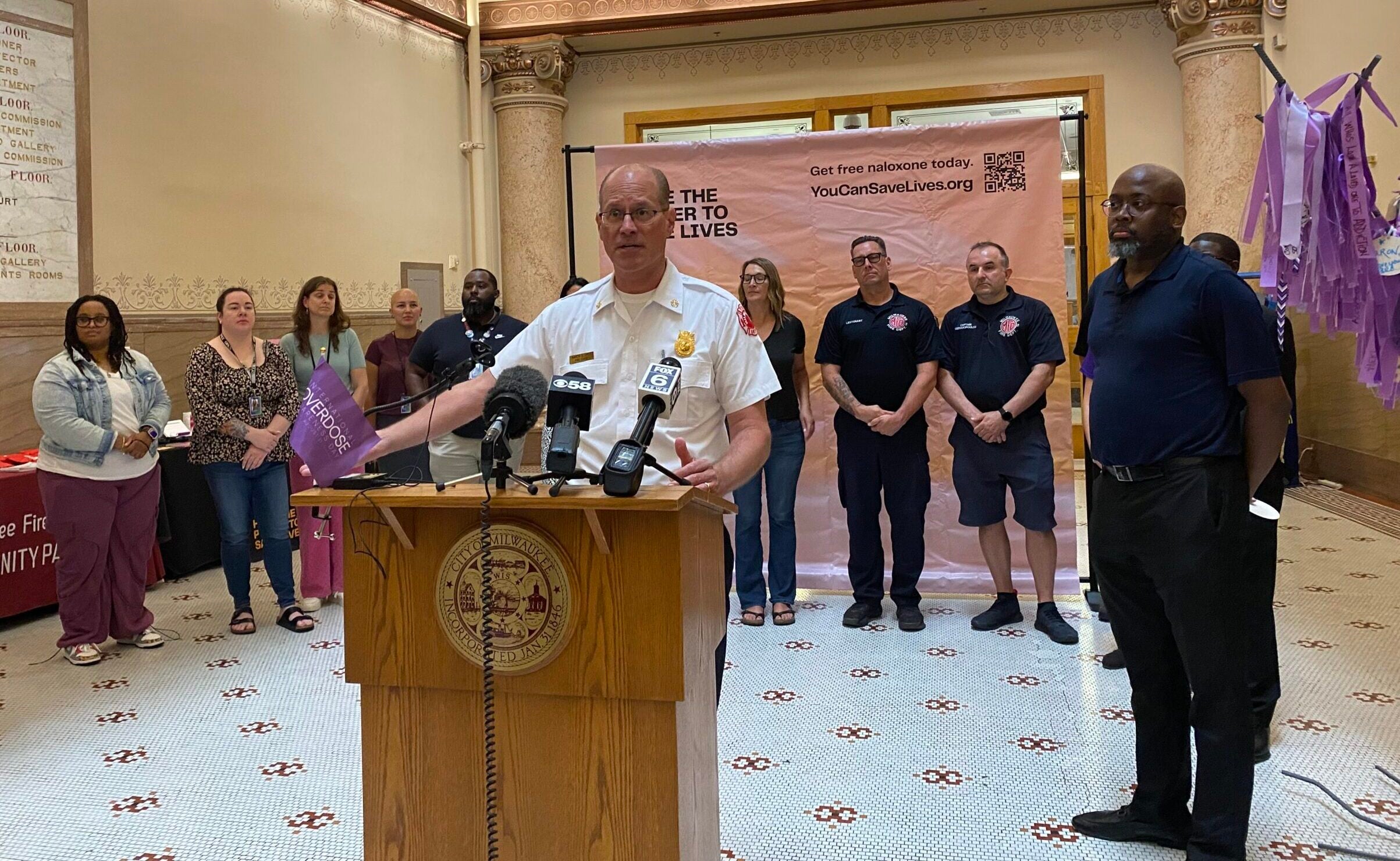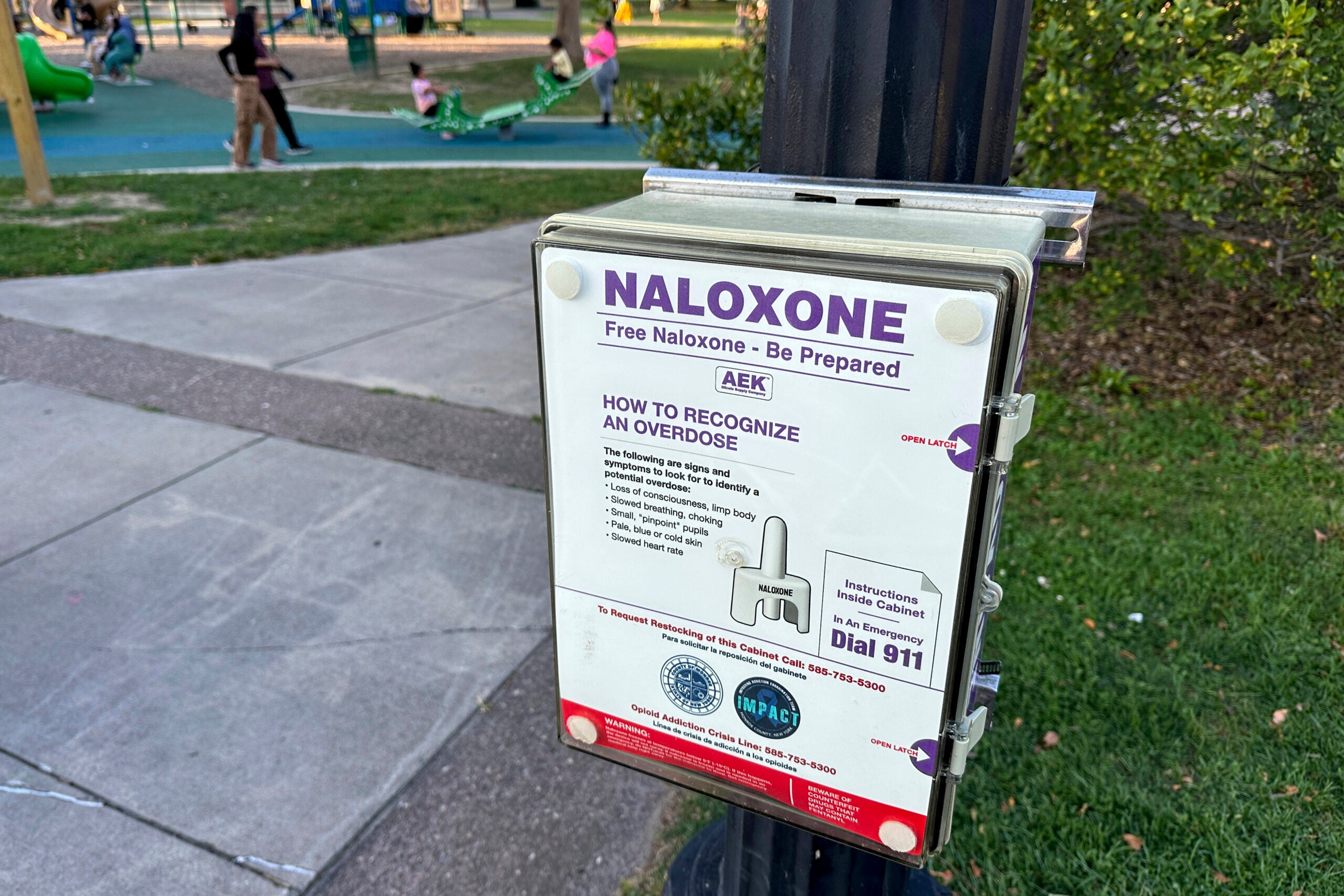Standing on the corner of a busy street on Milwaukee’s north side, Ricky Person is hard to miss — but that’s the point.
He’s wearing a bright yellow shirt that says “Overdose Doesn’t Discriminate.” At his side is a small wagon filled with several drawstring bags.
Shortly after 1 p.m. on a windy fall day, he and two others — Vincent McClelland and Sean Braxton — start rolling the wagon down the street.
News with a little more humanity
WPR’s “Wisconsin Today” newsletter keeps you connected to the state you love without feeling overwhelmed. No paywall. No agenda. No corporate filter.
After knocking on about five doors, they encounter a few people sitting on a porch.
“We’re doing saturated harm reduction,” Braxton told the group.
That term sounds complicated, but Person says it’s not. A few times each week, the group goes to areas of the county that have been hit the hardest by the opioid epidemic to hand out supplies like Narcan and fentanyl test strips and share information about prevention and treatment services. They also go to community meetings and events and into public housing properties across the city.
The goal is simple — to save lives.
“There’s no segment of our society that really hasn’t been impacted by this opioid pandemic (epidemic),” Person said.
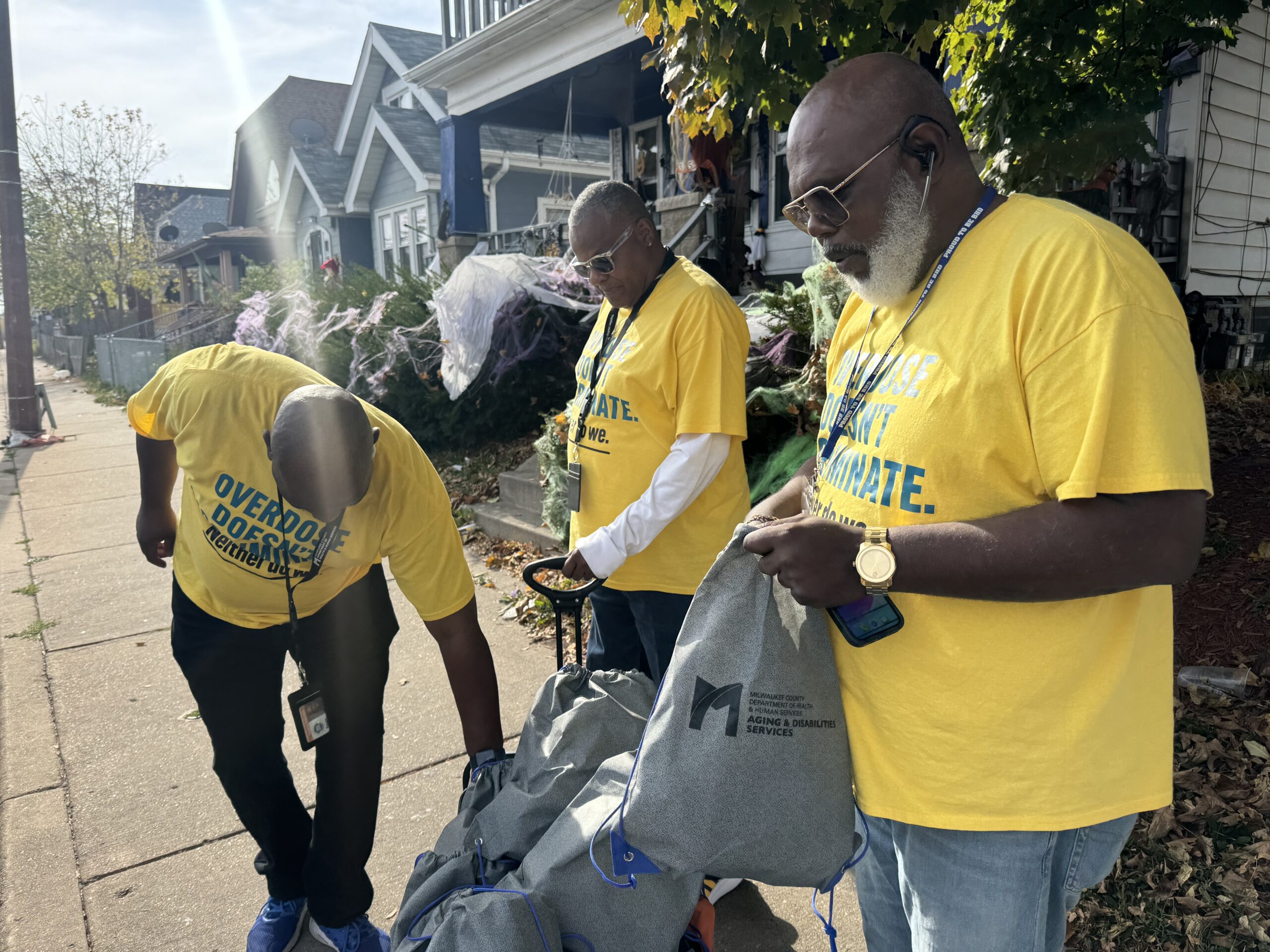
Overdose deaths had been on the rise in Milwaukee County and across the nation for years. But data from the U.S. Centers for Disease Control and Prevention revealed a recent decline in overdoses.
The latest data from Milwaukee County found there have been 344 overdose deaths so far this year. It’s estimated there will be 490 overdose deaths in the county in 2024, down from 668 in 2023 and 674 in 2022.
Person said he believes the program, which started earlier this year, is helping.
“We just want to continue to impact that,” Person said. “That’s what it’s all about, just trying to save a life.”
Outreach team goes into hardest hit parts of city, county
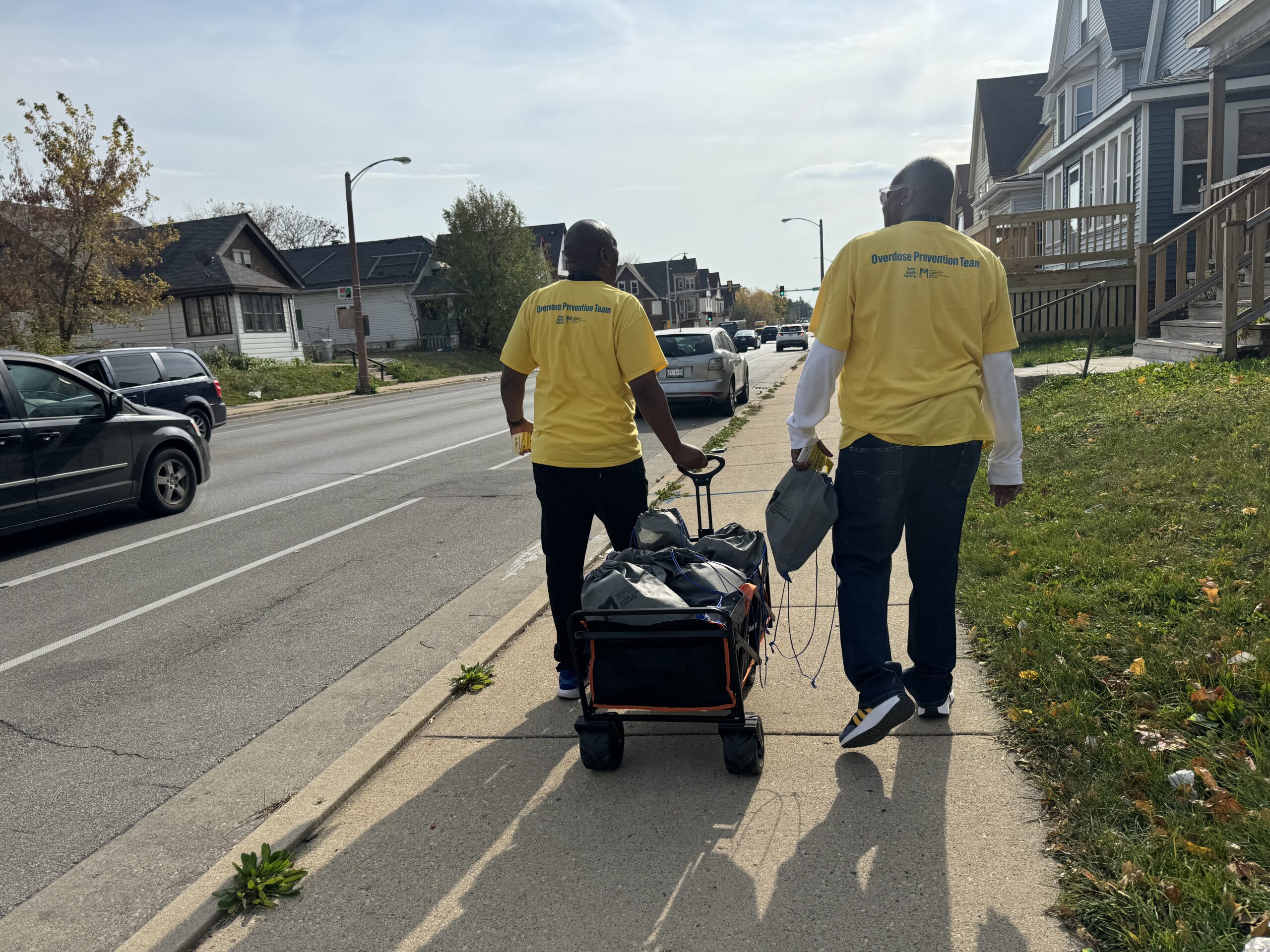
Person, a substance abuse counselor, uses a Geographic Information Systems map to locate the areas with higher rates of reported overdoses. Then, his team hits the pavement.
They go door-to-door and stop to talk to people walking by or pumping gas at a gas station. If someone isn’t home, they leave a flier with more information about resources.
The drawstring backpack is filled with Narcan, fentanyl test strips, Xylazine test strips, a Narcotics Anonymous meeting list and other brochures about county resources. It comes as overdose deaths involving a combination of Xylazine, also known as “tranq,” are on the rise across the county and nation.
“People are amazed that there’s something out there that they can test the drugs with to make sure that there’s no fentanyl in it, because that’s what’s causing a lot of the overdoses in the community,” Person said.
So far this year, there have been around 3,600 nonfatal overdoses in the county, according to a county dashboard. But a 2023 study found that providing Narcan to people who use drugs can help prevent overdose deaths.
This specific Wednesday, the outreach team is on the city’s north side. Over the period of an hour, they hand out over 20 bags and talk to about 15 people.
“(We) just try to spread the word, be a presence,” Person said.
Since July, Person said they’ve handed out around 1,500 bags.
“The residents, people who we encounter, they thank us,” Braxton said. “They’re excited to see us, because everybody is feeling, you know, the desperation of opioid addiction.”
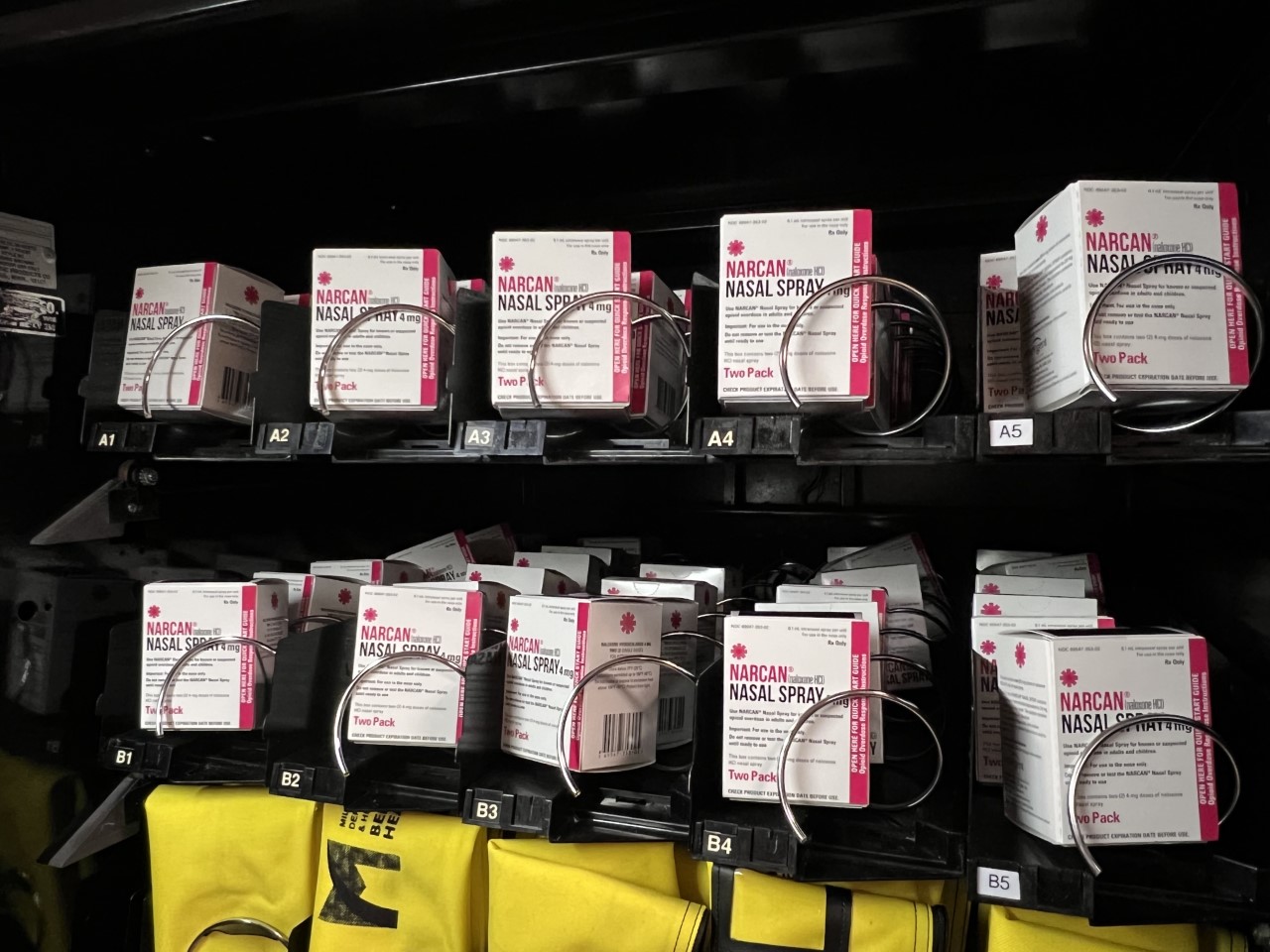
The group also goes into public housing properties across the city. Residents of those properties have complained about drug dealers nearby the buildings.
“Some of the people do have, even the seniors have, substance use disorders,” Person said.
The group partners with neighborhood associations as well. At a recent community event, Person said he heard from one woman who said she recently lost her cousin to a drug overdose.
“And she talked about how maybe if he would have had Narcan, he would have lived,” Person said.
The program is funded through money the county received from the settlement of a multistate lawsuit against four pharmaceutical companies. In 2023, the Milwaukee County Board of Supervisors allocated $11 million it received from the settlement to 15 projects over the next three years.
From addiction to recovery
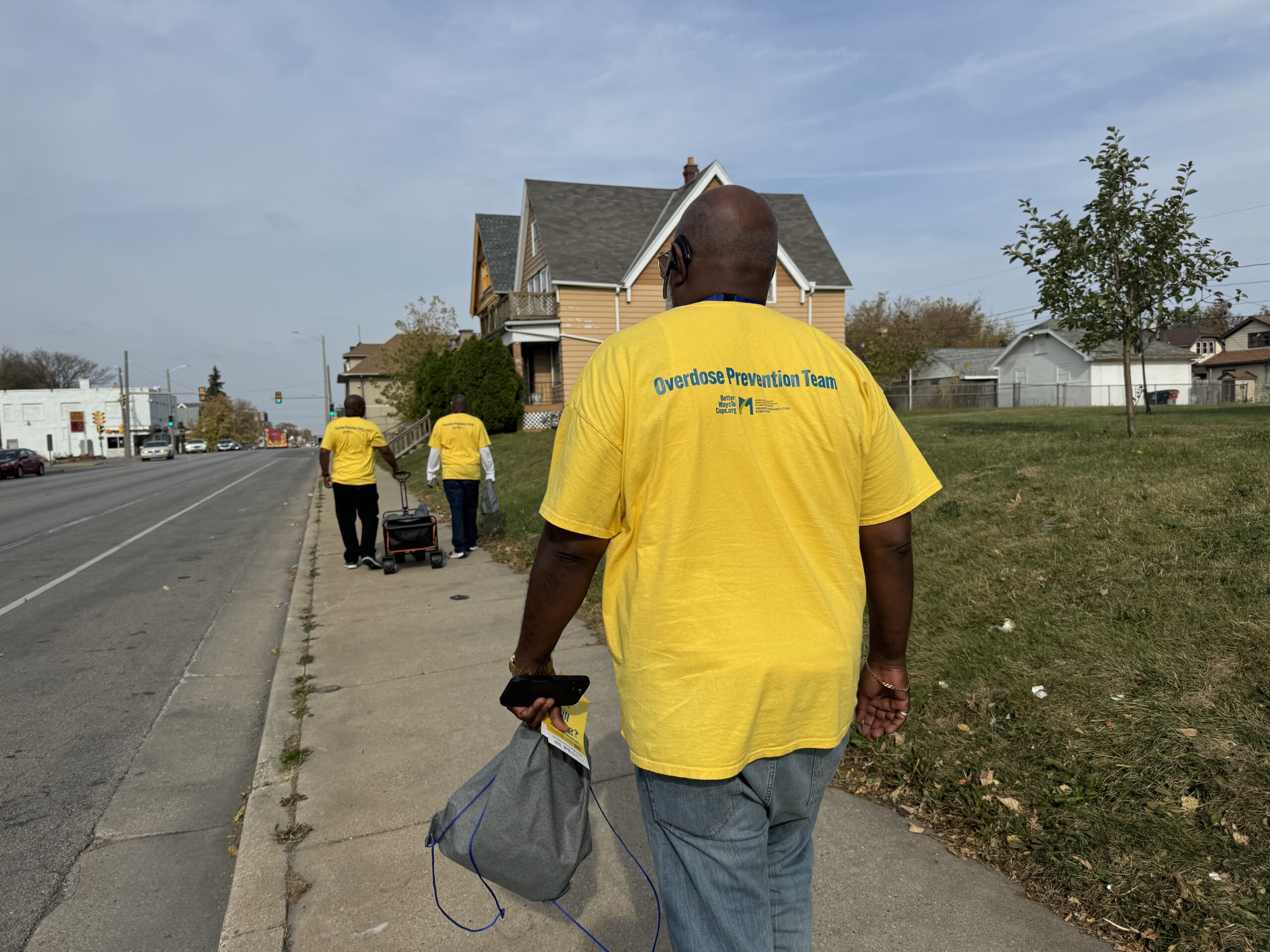
Person, McClelland and Braxton are all sober now, but say they all struggled with drug addiction at one point in their lives. Now, they’re focused on putting an end to the deadly overdoses that have plagued Milwaukee for years.
“Shortly after I got clean, I was able to get a job at actually the treatment center that I was a client at, that was my first job,” Person, who’s been sober for more than 30 years, said.
Braxton said he’s struggled with drug addiction for around 30 years.
“I’ve been clean 10 years real soon, and you know, it’s kind of giving back and trying to do something different instead of what I was doing before,” Braxton said about why he’s doing the work.
McClelland said his past has helped him relate to people.
“The good thing about this is, by me being a recovering person, I know where they come from, I know where they at right now, and I could tell them, it is another way out,” McClelland said.
Wisconsin Public Radio, © Copyright 2025, Board of Regents of the University of Wisconsin System and Wisconsin Educational Communications Board.

